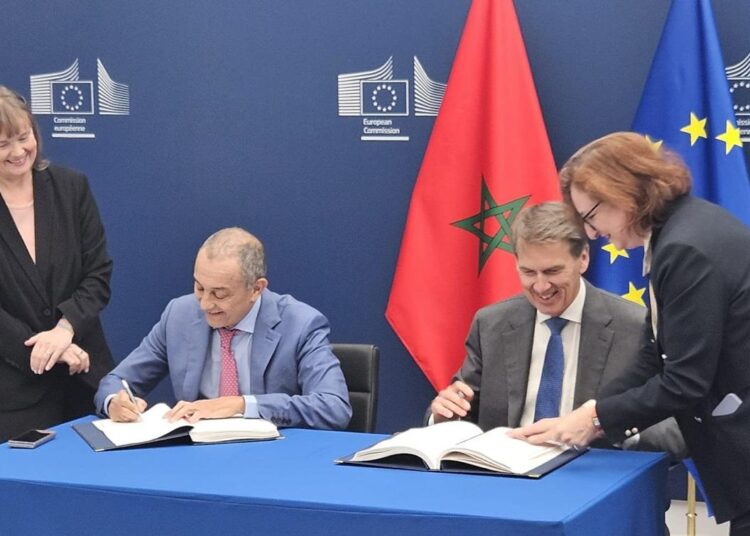Morocco, EU Sign Amended Agricultural Agreement to Boost Economic Opportunities in Southern Provinces

Rabat, The Gulf Observer: Morocco’s southern provinces are set to witness new economic opportunities following the signing of an amended agricultural agreement with the European Union (EU) on Friday.
The agreement, signed at the European Commission headquarters in Brussels, grants agricultural products from Morocco’s southern regions in Western Sahara the same preferential access to European markets as products from the rest of the country. It also introduces new labeling requirements highlighting the origin of goods, including “Laayoune-Sakia El Hamra” and “Dakhla-Oued Ed-Dahab,” thereby reinforcing the Moroccan identity of these products.
Rachid Bennali, President of the Moroccan Confederation of Agriculture and Rural Development (COMDER), emphasized the significance of the deal, noting its potential to attract investment and create jobs. Speaking to Morocco’s national broadcaster SNRT News, he said the amended agreement would enhance existing investments in the southern regions while drawing new ones, contributing to both economic and social development.
“This agreement opens new horizons for the agricultural sector, particularly for small and medium producers seeking to expand into European markets,” Bennali stressed, adding that the deal complements investment initiatives supported by international partners, including the United States.
Morocco’s Ministry of Foreign Affairs welcomed the agreement, describing it as a measure that “strengthens an already strong commercial relationship and consolidates a solid and dense partnership, with Morocco being the EU’s main economic partner in Africa and the Arab world.”
The amended agreement builds on the 2018 exchange of letters between Morocco and the EU, resolving longstanding questions regarding the application of trade benefits to the southern provinces. Beyond market access, it is expected to stimulate investment, support local producers, and generate employment, while also reinforcing Morocco’s position in the Western Sahara issue amid growing international recognition of its sovereignty.
Several countries, including the United States, France, Portugal, and the United Kingdom, have expressed support for Morocco’s autonomy plan and acknowledged its sovereignty over the region.


